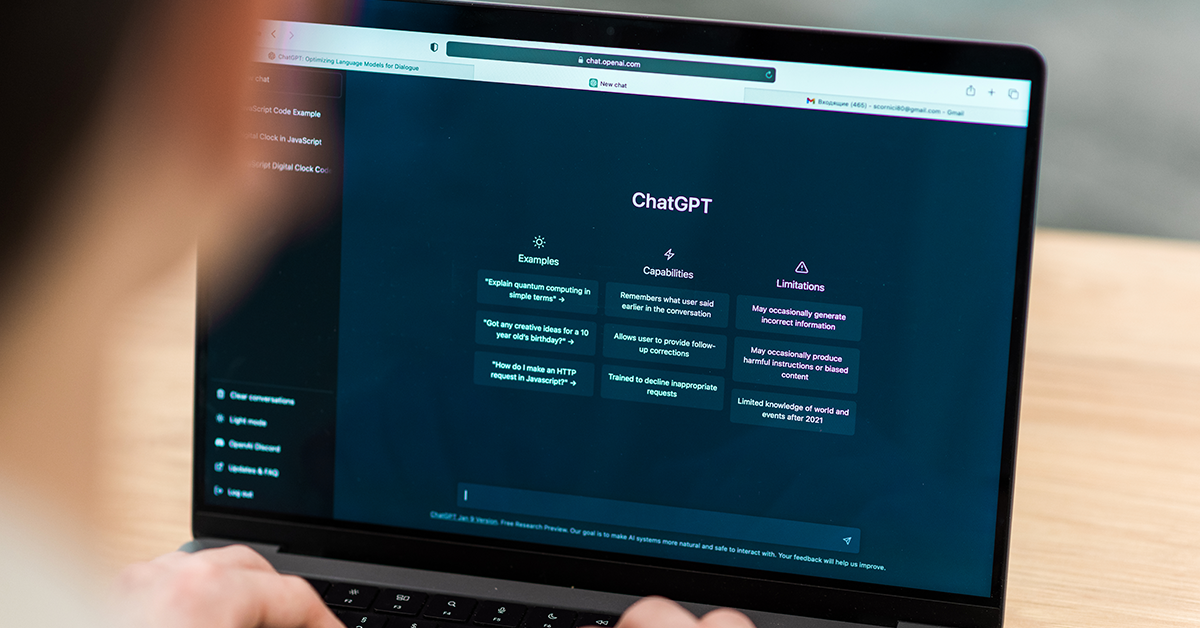
The campaign launch process is a crucial aspect of any marketing strategy. It involves the planning, execution, and analysis of a campaign. This is done to achieve specific goals, whether increasing brand awareness or driving sales. Traditionally, this process has been time-consuming and resource-intensive. It demands extensive collaboration and coordination among various teams.
However, with the advent of artificial intelligence (AI) and the powerful capabilities of ChatGPT, the campaign launch process can be transformed, allowing marketers to go from idea to execution in minutes.
Global marketing events in 2023 will explore the benefits of utilizing ChatGPT and AI to streamline the campaign launch process. Events such as the Marketing 2.0 Conference will cover the steps involved in curating a successful campaign launch and the challenges of leveraging AI effectively.
Effective Steps To Curate Succesful Launch Campaigns
Define Goals And Objectives
Clearly articulate the desired outcomes of the campaign. This can be increasing website traffic, generating leads, or driving sales. Set specific, measurable, achievable, relevant, and time-bound (SMART) goals.
Conduct Market Research
Gain a deep understanding of your target audience. Research their preferences, behaviors, and pain points. Use AI-powered tools to analyze market trends, competitor strategies, and customer sentiment.
Develop A Creative Concept
Collaborate with your team and leverage ChatGPT to brainstorm innovative campaign concepts. These must align with your brand identity and resonate with your target audience. Refine and iterate on these ideas to create a compelling concept.
Plan And Execute
Create a detailed campaign plan with a timeline, budget, channel selection, and resource allocation. Utilize ChatGPT to automate scheduling, content creation, and workflow management.
Monitor And Optimize
Continuously monitor the campaign's performance using AI-driven analytics tools. Analyze data, measure key performance indicators (KPIs), and make data-driven adjustments to optimize the campaign in real time.

How Does Chat GPT Benefit The Campaign Launch Process?
- Rapid Ideation
ChatGPT has allowed marketers to expedite the ideation and suggestion process. This applies to theme suggestions, content, and messaging being conveyed. By streamlining these processes, marketers have saved a ton of time. Marketers can skip tedious brainstorming hours and introduce fresher perspectives in the process. These perspectives help invigorate marketing strategies. Marketers can come up with innovative and fresher campaigns as a result.
Global marketing events, notably in the USA, will highlight this as a pivotal benefit, furthering the case for ChatGPT’s legitimacy.
- Enhanced Personalization
AI’s introduction, in the form of ChatGPT, has transformed content personalization for marketers. With access to vast amounts of customer data and preferences, targeted marketing is reaching new heights. Marketers can circle their campaigns per their target audience’s needs and likenesses.
Personalized campaigns result in higher conversion rates and engagement from brand audiences. Customers can resonate better with the brand and the message being conveyed.
- Efficient Content Creation
Crafting a compelling and persuasive copy is crucial for a successful campaign. ChatGPT allows marketers to experience streamlined content creation powered by AI. Marketers can save time and resources and ensure consistent content is pushed out through various channels. This positively impacts the company’s reputation and public image.
- Scalability And Cost Efficiency
ChatGPT’s advanced capabilities allow marketers to scale campaigns without enhancing allocated resources. By streamlining campaign processes, marketing teams can sustain multiple campaigns simultaneously. They can effectively allocate resources and reduce costs and time consumption significantly. Brands can experience a higher return on investment and allocate resources accordingly.
Global marketing events in 2023 will be all over this benefit introduced by ChatGPT. The possibilities of streamlining scaling and allocation when executing campaigns can open a new spectrum of innovation and creativity among marketers.
- Customer Engagement Receives A Boost
ChatGPT allows brands to utilize personalized marketing campaigns and customer insight to target their audience better. This helps brands achieve their campaign goals more effectively. AI-powered chatbots, bolstered by ChatGPT, have further helped enhance customer engagement. Personalization and an engaging chatbot to resolve any customer queries foster deeper connections.
Challenges ChatGPT Presents: The Reasons Behind Its Questionable Legitimacy
Playing host to global marketing conferences, events in the USA and Dubai will be highlighting some key challenges:
- Ethical Considerations
Implementing AI-powered campaigns necessitates careful navigation of ethical considerations. The potential for biased decision-making & discriminatory practices requires marketers to approach AI implementation with an ethical framework. Proactively addressing fairness, accountability, and transparency in AI algorithms becomes imperative. This is to maintain trust and ensure the ethical integrity of the campaign launch process.
- Integration With Existing Systems
Integrating ChatGPT into existing campaign management systems can be complex. Organizations must grapple with compatibility issues, seamless data synchronization, and robust API integrations. This is to ensure a smooth and cohesive workflow. The challenge lies in seamlessly integrating AI capabilities into established systems and processes without disrupting existing operations or compromising data integrity.
- Human-AI Collaboration
While AI can automate many tasks, human expertise, and judgment remain indispensable. Balancing the roles of AI and human marketers presents a challenge in effectively leveraging both strengths. Finding ways to foster collaboration, trust, and synergy between AI and human team members becomes crucial. This is to harness the full potential of ChatGPT and AI in the campaign.
- Technical Expertise And Training
Harnessing the capabilities of ChatGPT and AI demands a certain level of technical expertise. Organizations must invest in training their marketing teams. This is to effectively utilize and interpret AI-generated outputs and make informed decisions based on insights. The challenge lies in equipping marketers with the necessary skills and knowledge to leverage AI effectively. This ensures they can navigate the complexities of AI-powered campaign launches confidently and proficiently.
Addressing The Concerns Surrounding Inaccurate Data And Privacy
The utilization of ChatGPT poses challenges in ensuring the availability and reliability of high-quality data. Marketers must grapple with data sourcing, cleaning, and storage issues. This guarantees the accuracy and relevance of the data used to train AI models.
Preserving customer privacy becomes paramount. Organizations handle vast amounts of sensitive information. Increasing scams and fraud attacks are a concern. Striking a balance between data quality and privacy is a crucial challenge that demands meticulous attention.
As organizations embrace the transformative power of ChatGPT and AI in the campaign launch process, it becomes essential to address the challenges associated with inaccurate data and privacy concerns. Ensuring data accuracy and safeguarding customer privacy is paramount to maintaining trust.
Marketing 2.0 Conference will be among the post-COVID marketing conferences, notably in Dubai, highlighting this concern.
Inaccurate Data Concerns
- Data Sourcing And Verification
To mitigate the risk of inaccurate data, marketers need to establish robust processes for data sourcing. This involves identifying reliable and reputable sources. They must validate data integrity. Cross-referencing information from multiple trusted channels is crucial as well. By investing time and effort into verifying data accuracy, organizations can build a solid foundation for AI-powered campaigns.
- Data Cleansing And Preprocessing
Cleaning and preprocessing data play a crucial role in eliminating inaccuracies and inconsistencies. Implementing data cleansing techniques helps ensure the reliability of the dataset. These include removing duplicates, handling missing values, and correcting errors. Organizations can improve the accuracy and quality of the data fed into ChatGPT models by employing data preprocessing methodologies.
- Continuous Monitoring And Quality Control
Data accuracy is an ongoing concern. Establishing regular monitoring processes and quality control checks enables organizations to identify and rectify inaccuracies promptly. Implementing data validation protocols, periodic audits, and feedback loops with data providers can help maintain data accuracy throughout the campaign launch process.
Addressing Privacy Concerns
- Transparent Data Handling
Transparency is key to addressing privacy concerns. Communicate to customers how their data will be collected and used in AI-powered campaigns. Organizations should provide comprehensive privacy policies that outline data protection measures. They must share consent mechanisms and information about third-party data sharing. This instills confidence and ensures compliance with privacy regulations.
- Anonymization And Pseudonymization
Anonymizing and pseudonymizing customer data are effective techniques to protect privacy. Organizations can ensure that individual identities remain secure while leveraging the insights derived from aggregated and anonymized data. They can do so by removing personally identifiable information. This approach minimizes the risk of unauthorized data exposure or privacy breaches. Scams and fraud facilitated by privacy breaches are a primary concern.
- Consent And Opt-Out Mechanisms
Obtaining explicit consent from customers before collecting and using their data is essential. Clearly articulate the purpose of data collection and provide easy-to-use opt-out mechanisms. This is to empower individuals with control over their personal information. Giving customers the ability to manage their data preferences builds trust and reinforces privacy-centric practices.
Conclusion
ChatGPT is a prime example of AI revolutionizing marketing. The ability of marketers to raise customer engagement and brand awareness without wasting resources is bound to push innovation and creativity in the coming years.
Coming to ChatGPT’s legitimacy, marketers will go back and forth to make their case as AI solidifies itself rapidly. The thing that is for sure is the need for ChatGPT to address prevalent concerns. This will lead to a mass shift in the acceptance of AI-powered campaigns.
Global marketing events in 2023 will fulfill the industry’s desire for extensive coverage on this topic. Among these events, Marketing 2.0 Conference is set to host a panel of industry experts and veterans. Known for engaging keynote and panel discussions, attendees will be experiencing fresh perspectives on emerging industry trends!

